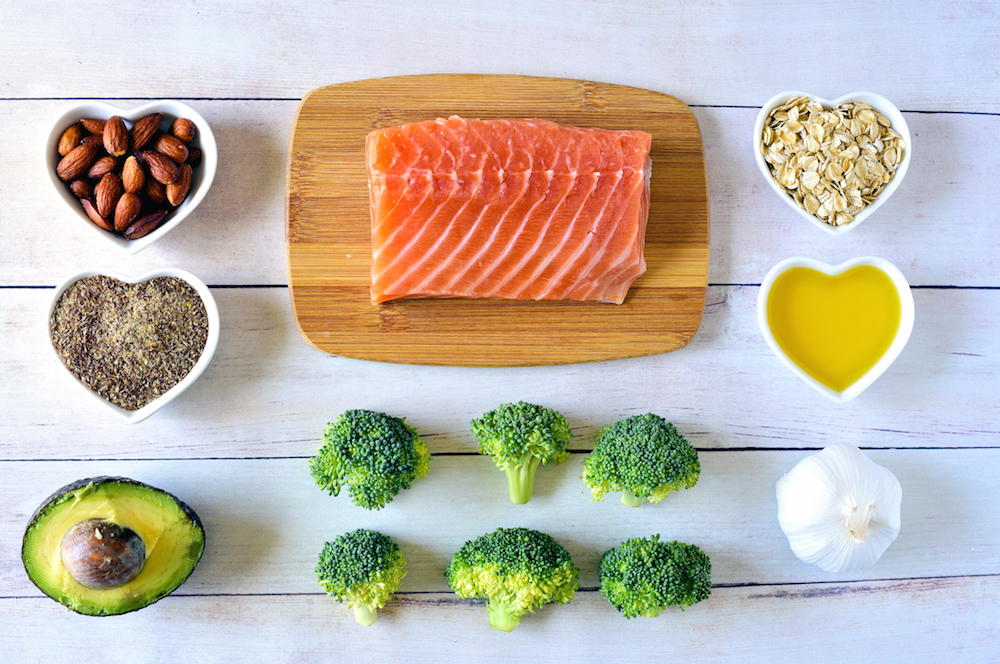BROUGHT TO YOU BY BUPA GLOBAL
There's no doubt that many of us often have to wrestle with the impulse of eating junk food that we know is bad for our health. While a slice of pizza or two every so often won't have a major impact on our wellbeing, when an indulgence becomes a habit, these little choices that we make every day can have an effect on our health further down the road.

Kickstart Your Healthy Habits
NHS research
1 conducted in 2017 indicates that someone who is obese is significantly more likely to develop a number of serious and potentially life-threatening conditions such as Type 2 diabetes, coronary heart disease, strokes, and particular types of cancer including breast and bowel cancer. Alarming, we know. But the good news is that maintaining a healthy weight doesn't necessarily mean that we have to make drastic change in our lifestyle – it's actually about the small decisions we make every day.
"The calorific load in food today is mind-blowing, and it’s easy in a short amount of time to consume two to three times the amount of calories you should in a day”, explains Dr Amit Sethi, former UK medical director at BUPA GLOBAL.
Even small, yet sustained, calorie excess can build up, for example, 100 extra calories each day over 10 days adds up to a significant 1,000 calories, and if that doesn't get burned off, it eventually gets stored as fat. The trick here is not to think about the 1,000 extra calories, but the 100. Make the small changes and the bigger ones will look after themselves. This way, you can come to think of maintaining a healthy weight as a series of simple daily decisions, rather than big life-altering changes that can be difficult to sustain in the long run.
What's the Link Between Weight and Heart Disease?
While you can see, or feel, the effects of weight gain on your body – trousers feeling tight or shifting to another belt notch – the impact on your heart can be quietly cumulative. You might not know about it until you have a serious problem.
Sustained high blood pressure (which can damage the lining of the coronary arteries) and raised cholesterol levels are both common signs of excess weight. Both of these contribute towards damaging the cardiovascular system through plaque, which is a combination of cholesterol, calcium, and fat in the blood (triglycerides). Plaque can build up inside arteries, hardening and narrowing them, which reduces blood flow to the heart that potentially causes a blockage which can lead to a heart attack.

Is Cholesterol the Culprit?
Cholesterol is a fat (lipid) that is produced by your liver and carried around your body by proteins called lipoproteins. It’s vital for the formation of cell membranes, vitamin D, and certain hormones.
There are two types of cholesterol, often referred to as ‘good’ and ‘bad’. High-density lipoprotein (HDL) protects the heart because it mops up bad cholesterol from your bloodstream. Low-density lipoprotein (LDL) and triglycerides, on the other hand, are known as bad cholesterol because they can contribute to plaque formation in your blood vessels. For some people, high LDL cholesterol levels are genetic and treatable with drugs. For others, they are due to eating too much food that’s high in saturated fat.
High cholesterol levels produce no outward symptoms, so if you have concerns, then it’s best to speak with your family physician and see if they feel a cholesterol check is necessary.
What Are the Measures that Really Matter?
"The rate of obesity around the world is spiralling, but there’s also an increasing awareness of the importance of weight and body fat composition", says Dr Sethi. "Body Mass Index (BMI) is useful, but it is increasingly questionable how much we should be guided by this."
BMI doesn’t distinguish between fat and muscle. Muscle weighs more than fat, so muscular people may be wrongly defined as overweight or obese. Conversely, people with normal BMIs can still carry a lot of fat around their waists, which may indicate an increased risk of heart problems.
Some research now suggests that the ratio of waist circumference to height may be a better gauge for cardiovascular risk, with the healthiest ratio being a waist circumference that is less than half your height.

What Makes a Heart-healthy Diet?
It’s important to note that while a healthy waistline is crucial, a heart-friendly diet isn’t a zero-fat one – it’s a diet that favours unsaturated fats over saturated. Unsaturated fats help to lower ‘bad’ cholesterol. Soluble fibre can reduce it too.
To eat the right fats and maintain a healthy waistline, try this simple checklist:
- Focus on unprocessed, high-fibre foods such as fruits and vegetables, legumes, wholegrains, and nuts
- Choose foods high in unsaturated fats, like nuts, seeds, oily fish, and avocados
- Opt for fish, chicken, and lean meat to reduce saturated fat intake
- Limit red meat that's high in saturated fats
- Reduce your salt intake at the table and read the backs of packets to check for ‘hidden’ salt
- Exercise regularly as this can lower your triglycerides and increase your HDL levels
“Stopping problems years before they manifest is much easier. If we eat good food, keep our triglyceride levels low, and exercise regularly to create muscle mass that can help burn off excess calories, we can maintain a healthy weight and heart, now and into the future,” says Dr Sethi.
It truly is those small daily decisions that add up through the years.
[su_spoiler title="Sources" style="fancy" icon="plus-circle"]
1.NHS (
http://www.nhs.uk/conditions/obesity/Pages/Introduction.aspx), last accessed in January 2017
[/su_spoiler]
[su_note note_color="#eeeeee"]
 bupaglobal.com
bupaglobal.com | 2531 8586 |
[email protected] [/su_note]
DISCLAIMER: This article was designed and produced by Bupa Global by searching internal and external data and information for information provision and reference purposes only. Any views or information mentioned and set out in this article/webpage are based on general situations. Readers should not regard them as medical advices or medical recommendations. Before making any decisions about the theme of this article, you are recommended to seek independent advice from suitable professionals (such as doctors, nutritionists, etc.). It is clearly stated that Bupa Global will not bear any responsibilities for others’ usage or interpretation of the information listed in this article. When preparing and/or updating this article, Bupa Global endeavours to ensure that the content is accurate, complete and updated but will not bear any responsibilities nor make any warranty or guarantee for the accuracy, completeness and timeliness of the information or for any claims and/or losses caused thereby.



 bupaglobal.com | 2531 8586 | [email protected] [/su_note]
bupaglobal.com | 2531 8586 | [email protected] [/su_note]